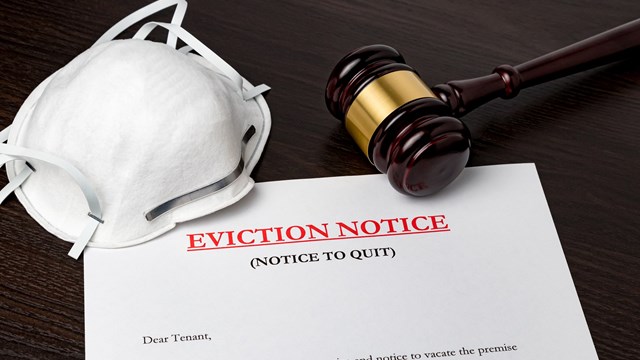—Concerned Relative
“Generally speaking and without reviewing the proprietary lease for this apartment, says partner Lawrence C. McCourt, a partner at the Manhattan-based law firm of Heiberger & Associates, P.C., “should the Lessee of HDFC die, proprietary leases for HDFCs provide that consent of the Board shall not be unreasonably withheld to a request for a transfer the stock and assignment of the proprietary lease to a financially responsible member of the family. If your uncle did not have anything in writing showing her intent to pass the apartment to him and she died intestate (i.e. without a will) applications could have been made to Surrogates Court to pass the shares of the apartment to him through intestacy. However, if there were multiple claims on the shares by other family members this proceeding would be complicated. But regardless, it does not seem right for the board to say that yourgrandmother's shares were extinguished simply because she died without anotarized letter transferring the apartment to a family member.
“If your grandmother had arrears for maintenance on the unit, the sharescould have been extinguished by a foreclosure(via a judicial or non-judicial foreclosure)then the Board rented itto your uncle as simply a tenant. But ifthe cooperative board did nothing to extinguish your grandmother's shares,then a claim could be madethat the shares are still in effect and your family members could make claim to them as governed by the proprietary lease.
“As to the question of possession of the unit: it appears that the board has resorted to the common law remedy of "self-help;" i.e. the landlord taking possession of property without using judicial process. From your question, one cannot tell if you were in possession or not at the time the board took possession of the unit.If theshares were extinguished and you were not in possession of the unit, and there was no lease in effect at the time of death, they could lock doors, as the courts have upheld the use of "self-help" against those who have no claim to the property.
“However, the courts do in fact frown on the use of "self-help" and regardless of whether the shares were terminated, if you have a claim to possession as a licensee at the time of death of the tenant, or you are a representative of the estate of your uncle, an "illegal lockout" proceeding may lie.
“This is due to the fact that alease which has not expired is not terminated by the death of the lessee. Upon the death of the tenant the balance of the leasehold interest of the decedent becomes personal property of the estate. The deceased tenant is substituted by the estate as a party to the lease which remains liable for the rent until the expiration of the lease. The executor of the estate has the right to remain in possession of the premises only in his capacity as a representative of the estate until the expiration of the lease term to wind up the business and affairs of the estate. If you wish to be your uncle's estate representative, you must make the appropriate application to the Office of the Public Administrator to be appointed his administrator.
“So in order to obtain possession of the apartment if your uncle had time left on his lease and you are either his licensee or can show that you are the representative of the estate, the board had to commence a case against your uncle's estate representative ( be it an executor or public administrator) to obtain possession. By law the landlord must wait 90 days from death to commence an action for possession and alandlord may not elect to evict a licensee from real property without first having legally recovered possession of the premises from the licensor or licensor's estate as the party who is entitled to possession of the property occupied by a licensee.
“Thus, to sum it up, if the board never extinguished your grandmother'sshares and you are the responsible party in the family or may claim next of kin status for purposes of intestacy, you may be able to bring such an illegal lockout proceeding in order to regain possession of the unit until the estate issues are resolved. Or, assuming the shares were validly terminated and your uncle occupied the premises pursuant to a lease which has not yet expired, you may bring an illegal lockout proceeding to regain possession if you were your uncle's licensee or if you are the estate representative. Of course, in such a proceeding, the court will require the maintenance of the status quo, meaning that all the use and occupancy (rent) due under your uncle's "tenancy" must be paid while these issues are being resolved.”










3 Comments
Leave a Comment